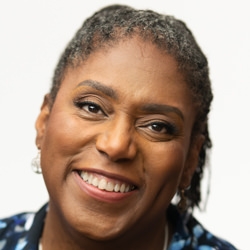
Search Results: racism
-
In a recent vacation in a Mexican village, I was surprised to find myself in the midst of a community in mourning. Two days before I came, a 21-year-old girl had died in a car accident. Everyone in the town knew her and was openly affected by her death.
-
- Unpack interpersonal, internalized, and institutional racism from the lens of NVC consciousness
- Hear and share personal stories and the impacts of racism, power, and privilege
- Learn how to translate “hard to hear" messages into meaningful conversations
- Expand and deepen the conversation of systemic and interpersonal racism
-
Join Itzel Hayward and Kathy Simon as they present two role-play scenarios showcasing diverse approaches to navigating difficult conversations. Throughout the demonstration, they underscore the significance of cultivating self-empathy and mindfulness to effectively engage in challenging dialogues. Specifically, they introduce a role-play scenario concerning affirmative action, aimed at illustrating the contrasting outcomes when utilizing or not utilizing nonviolent communication skills.
-
-
When we have privilege, we can have access to resources resulting from legal or social norms related to membership in a group -- independent of any (in)action, awareness of the disparity, the potential benefits to us, or the costs to others. Unhelpful ways of engaging with privilege are: denial/invisibility, guilt/shame, defensiveness, and entitlement. Helpful ways of engaging are: owning privilege, learning about privilege, opening to feedback, and stewarding privilege for benefit of all. To be helpful we need to engage with necessary (rather than unnecessary) discomfort.
-
It’s essential to give ourselves time to grapple with the complex feelings surrounding the brutality of state-sanctioned racism and violence. But if all we do is reflect and attend to our emotions we fail to show up, where and when it counts. So let's not perpetuate the violence by standing idly. Instead, here's ten things you can do to move into concrete action to address the continued, untenable, and horrific violence of racism. A list of resources is included.
-
Roxy Manning suggests that in navigating a situation where accusations of racism and a white savior complex arise, the facilitator emphasizes the distinction between intention and impact. Acknowledging the pain of the aggrieved person, the facilitator clarifies that racism is about impact, not necessarily intention. Encouraging a focus on the impact first, the facilitator invites understanding of the internal and systemic levels of the experience. Despite the person's insistence on their intention, the facilitator remains firm in prioritizing the discussion of impact. The goal is to create a space for acknowledging and addressing the impact before delving into intentions.
-
If we're to have a better future, our biggest task will be to reexamine what the police are, their place in the system, and more. Police violence exists by systemic design. The myths of where the problems and symptoms lie with the police, capitalism, laws, government, citizens, class and racism --plus the relationship between all these-- is what keeps oppression ongoing on a mass scale. For change to happen, we'll need to find systemic leverage points, and use privilege to benefit those without it. Read on for more.
-
Working for racial justice is a shift in perspective—a shift in understanding and empathy that leads to a change in our actions: to listen instead of talk, to follow instead of lead, to yield rather than dominate. And to accept that I will continue to mess up. Part of working to undo racism is having the humility to know when our own understanding is limited. Read on for more this, and how it relates to meditation -- plus personal and collective liberation.
-
Human health is connected to health of ecosystems and other societies. Our wellness and liberation is found in our interconnection, kinship, reverence for life, and solidarity. Solidarity erodes through narratives, practices and policies that separate us from each other -- and this impacts societal functioning. The breakdown creates conditions for pandemic, racism, police brutality, exploitation in untold numbers, and extinction. Read on for how all is connected.
-
It’s essential to give ourselves time to grapple with the complex feelings surrounding the brutality of state-sanctioned racism and violence. But if all we do is reflect and attend to our emotions we fail to show up, where and when it counts. So let's not perpetuate the violence by standing idly. Instead, here's ten things you can do to move into concrete action to address the continued, untenable, and horrific violence of racism. A list of resources is included.
-
The focus on patriarchy emerges from the understanding that patriarchy plays a foundational role in everything. Yes, I mean it: everything. Patriarchy is not the same as sexism; patriarchy is to sexism very much what structural racism is to (interpersonal) racism: it's a system that runs independently of any one person's attitudes or behaviors. Join Miki for her first in a series of discussions on patriarchy.
-
Why does NVC practice, and NVC training/coaching, appear to be not enough to bridge divides between people? This article takes a look at the trickle down effect of our societal conditioning, what we can add to our NVC lense, and what we can do "upstream" when NVC doesn't seem to be enough. Additionally, the article talks about unseen constraints that men, women and minority groups face in organizational settings...
-
Want to increase diversity, plus improve group dynamics and group functioning? There are things you can do to make NVC settings more welcoming to people of color. Learn more about how to use NVC; attend to impact; help the community understand and demonstrate more awareness; factor in historical context; engage; create a more inclusive climate; and more!
-
Understanding how our brains operate in relation to power, privilege and status is important if we wish to build a world that works for all. This article gives an overview of the brain tendencies we have in relationship to groups, and provides remedies to counteract the automatic labor-saving devices of our human brains (which often prevent us from seeing the fullness of others, and our own, humanity).
-
Amidst racial violence, there are things that NVC can offer. And there are places where NVC culture needs to be more vigilant. Here are examples of where, amidst incredible loss and pain, "allies" and communities commonly (and often unknowingly) create false equivalences, minimization and re-injure those who've been historically marginalized -- even when they offer empathy, or aim to stay "safe". Read on to cultivate greater understanding and ways to respond differently.
-
The existing unequal risks and impacts people of certain race, class and identities face in society is magnified in these strenuous times -- especially with things such as illness, financial well being, discrimination, attacks, and death. As responsive NVC practitioners we can stand in solidarity with those who are differentially impacted. Read on for this, and additional ways to spot common pitfalls of doing so.
-
Many believe it's only a true NVC request when we can ask for what we need without urgency or insistence. But what if we're the target of oppression and hate in a world with systemic inequality? Is it still nonviolence to abdicate power by allowing the person enacting harm to be the one to decide whether harm continues? The intensity of the need, degree of harm, and how chronically unmet the need is, are factors to guide us for when to apply force and demand within NVC. We can be attached to outcome, without being attached to strategy.
-
Jeff Brown moderates a fishbowl discussion discussing why it's uncomfortable for them to talk about privilege… what they're doing to be aware of / combat racism… and the role of empathy and NVC around privilege.
-
If we are to transform the existing social order, and shift to a mode of liberation for all, we'll need to look at our own participation in it. This includes how much we are able to focus on keeping our hearts open; speak to impact without attributing intention; and retain a humility that includes our systemic context. Read on for "how to" when we are in a position of less power.

















